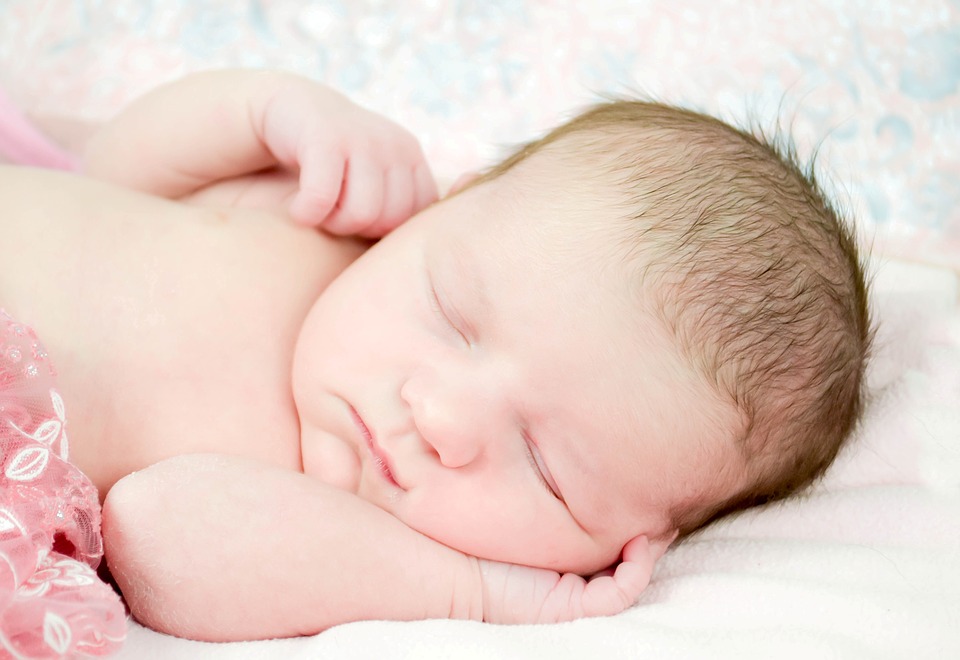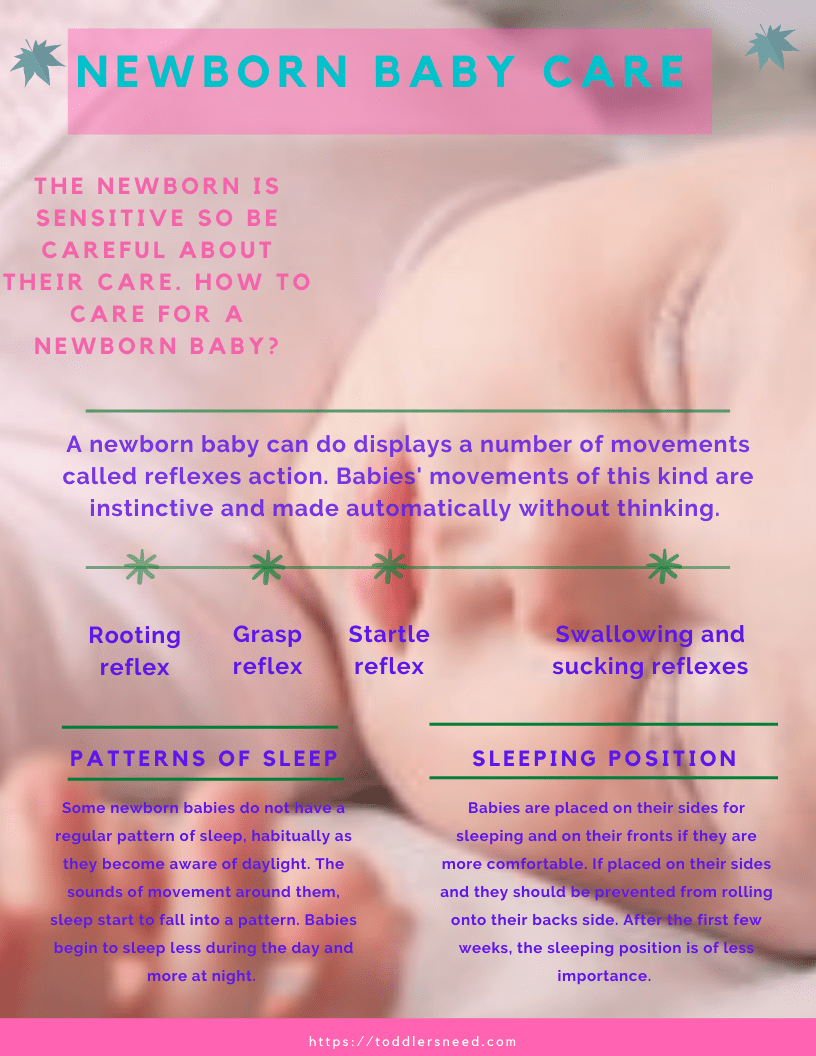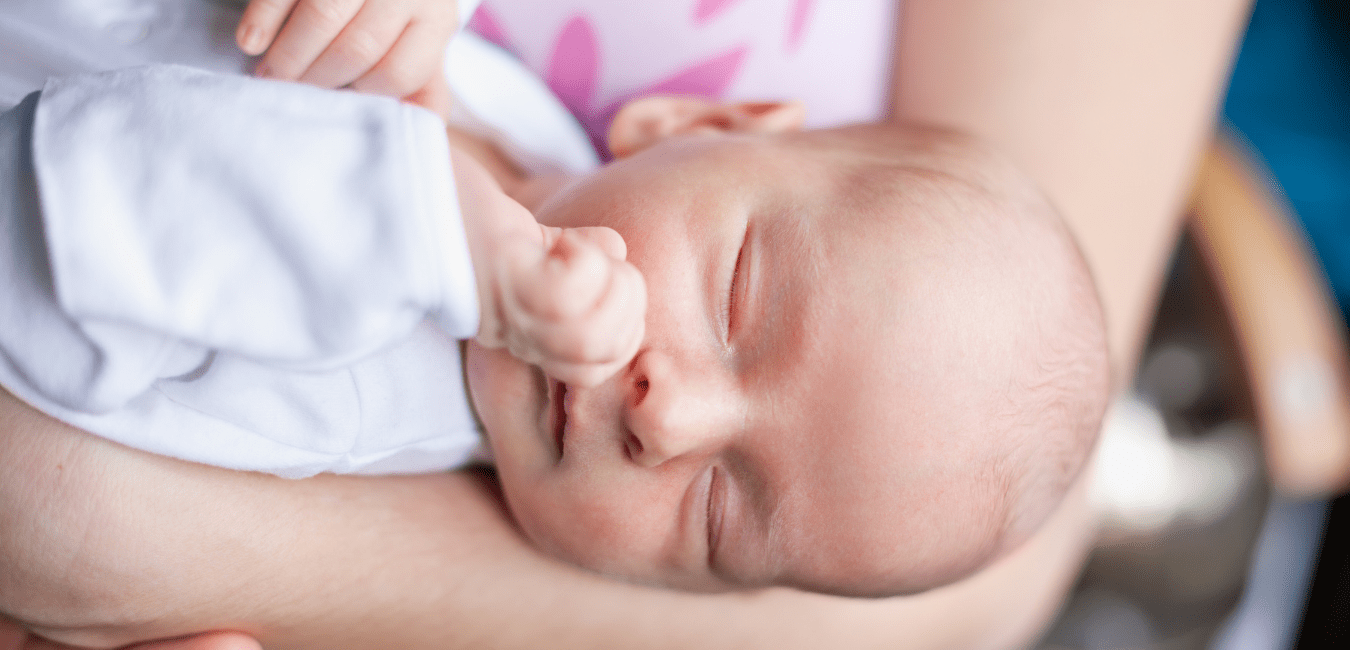A newborn baby is able to do many things besides cry. Newborn times when they sleep and times when being awake. A newborn baby can do move its legs, head, arms, and body. Newborn babies stretch, yawn, hiccup sneeze, and make many other activities. Newborn babies also able to collect a certain amount of information from the world around them through the five senses. The newborn is sensitive so be careful about their care. How to newborn baby care.
Movement:
A newborn baby can do displays a number of movements called reflexes action. Babies’ movements of this kind are instinctive and made automatically without thinking. The six reflexes are shown by newborn babies.
- Rooting reflex: When touched on the cheek, the baby’s head turns as if in search of the nipple.
- Swallowing and sucking reflexes: Putting anything in the mouth; the baby immediately sucks and swallows. Some newborn baby even makes their fingers sore by sucking them while still in the womb.
- Grasp reflex: when you put anything in a baby’s hand the automatically grasps it.
- Walking reflex: when the baby is held upright with the feet touching a firm surface, then the baby will make walking movements.
- Startle reflex: whenever any loud sound or bright light startles a baby, the baby clenches the hand and bends the elbows to bring the firearms in. Sometimes the baby may even be crying.
- Falling reflex: Any sudden movement which affects the neck gives the baby the feeling that baby may befall. it makes the baby fling back his arms and opens her hands, then bring the arms together as if to catch hold of something.
Some of the reflexes are necessary for a baby to survive and these reflexes mainly disappear by the age of three months and then the baby starts learning things and gradually replaced those actions.
The Senses:
- Sight: newborn babies can see and their eyes focus at a distance of 20-25 cm so they are short-sighted. Newborn babies see most clearly those things which are near them. Newborn babies also notice brightness look towards a brightly lit window or shut their eyes when a bright light is suddenly turned on.
- Hearing: newborn babies can hear and they respond to sounds by blinking, jerking their limbs. Stop feeding at the sound of a sudden noise if the crying baby may become quiet and appear to listen when someone speaks to him. The baby learns to recognize his mother’s voice.
- Touch: newborn babies can feel and they are sensitive to touch and pain and change of her position. They will be crying if the bathwater is too hot or too cold and will be comforted by the contact with alternative human beings, as ensues when they are held close and hugged.
- Smell and taste: babies are sensitive to smell and taste. Babies an unpleasant smell makes a baby turn his head away and will also indicate if he finds a taste pleasant or unpleasant. When the baby near his mother’s breast he smells the milk and may try to get his mother to it. Carefully take care of a newborn baby.
Newborn Baby Sleep
Newborn babies spend most of the time asleep, waking at intervals to be fed. The amount of sleep varies from baby to baby and often from day to day. Some sleep 20 out of 24 hours. It is difficult to say how long a baby should sleep at any one time. Perhaps a baby will sleep for five hours and only for an hour or two. Babies cannot help falling off to sleep and it can be difficult or impossible to wake them.
Patterns of sleep: some newborn babies do not have a regular pattern of sleep, habitually as they become aware of daylight. The sounds of movement around them, sleep start to fall into a pattern. Babies begin to sleep less during the day and more at night. A comfortable bed helpful to increases sleep.
Sleeping position: babies are placed on their sides for sleeping and on their fronts if they are more comfortable. If placed on their sides and they should be prevented from rolling onto their backs side. After the first few weeks, the sleeping position is of less importance. Many children seem to choose to sleep on their fronts. Having baby sleep in the mother’s room for at least the first six months can help lower the risk. And of course, newborn baby care, keeping her baby close by helps makes for easier nighttime feedings.
Newborn Baby Body Care
To keep your newborn clean and comfortable, use these easy, doctor-recommended tips.
Face and Eyes
Although seeing a newborn with a red, speckled face is upsetting, baby acne is a common and harmless ailment. Wash your baby’s face with gentle baby soap on a daily basis. A blocked tear duct is the most common cause of yellowish discharge or crusting in the eye or on the lid in certain babies. This can be a long-term condition. With a cotton ball dampened with warm water, wipe the affected area.
Scalp and Nose
Cradle cap affects many newborns, causing a scaly scalp. It usually goes away within a few months of being diagnosed. No more than three times a week, wash your baby’s hair with gentle baby shampoo and brush out the scales with a baby hairbrush or soft toothbrush every day. Mucus tends to fill the small nasal passages of babies. Using an infant-sized nasal bulb syringe or the trauma-reducing Nosefrida, gently clear nostrils. Before suctioning, use an eyedropper to inject a saline solution to release mucus.
Skin
Eczema or atopic dermatitis, an inheritable skin condition, affects some babies and causes red, itchy areas. Limit baths to 10-12 minutes and use lukewarm water with a gentle, fragrance-free soap; use hypoallergenic skin cream liberally afterwards. Wear only cotton garments.
Happy Ending
Because your baby’s skin is the largest organ on their body, it’s critical to look after it. Keep your baby’s skin clean, dry, and out of the sun at all times. It’s also vital not to use too many moisturizers or other skin products, which can exacerbate skin problems. In the first year of life, babies are vulnerable to a variety of skin problems. If a rash emerges with a temperature of 100°F or higher, or if it does not go away within a few days, you should seek medical advice from your baby’s doctor.




Thankfulness to my father who informed me about this web site, this blog is actually remarkable.
I haven?¦t checked in here for some time because I thought it was getting boring, but the last few posts are good quality so I guess I will add you back to my daily bloglist. You deserve it my friend 🙂
I simply couldn’t depart your web site prior to suggesting that I really loved the usual information an individual provide on your visitors? Is gonna be back incessantly in order to investigate cross-check new posts